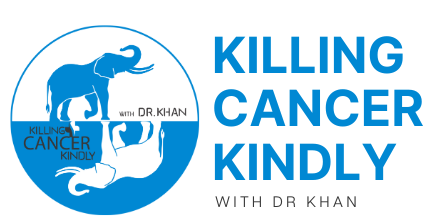Everything you need to know
Dealing with a cancer diagnosis can be overwhelming, and understanding the extent and severity of the disease is essential for determining the most appropriate treatment plan. This is where cancer staging comes into play. Cancer staging is a crucial aspect of cancer diagnosis and treatment, providing vital information about the tumor’s size, the extent of spread, and whether it has invaded nearby tissues or metastasized to distant organs. In this article, we will delve into the intricacies of cancer staging, its significance, and the various staging systems used by medical professionals to classify cancer cases.
What is Cancer Staging?
Cancer staging is a systematic way of describing the extent and severity of cancer in a standardized manner. It helps healthcare providers assess the progression of cancer, plan treatment strategies, and predict the patient’s prognosis. Staging is typically based on various factors, including tumor size, lymph node involvement, and the presence of distant metastases.
Why Does Cancer Stage Matter?
Cancer stage matters significantly as it provides crucial information about the tumor’s aggressiveness and spread. It helps healthcare professionals design a personalized treatment plan tailored to the specific needs of the patient. Additionally, the cancer stage plays a vital role in determining the patient’s chances of survival and helps estimate the overall prognosis.
When is Cancer Staging Done?
Cancer staging is typically done after the initial diagnosis of cancer. It may involve a combination of imaging tests, biopsies, and laboratory analyses to determine the tumor’s characteristics and identify the extent of its spread. Staging is a critical step before deciding on the most suitable treatment options.
How is Cancer Staged?
The TNM Staging System
The most widely used staging system for cancer is the TNM system, which stands for Tumor, Node, and Metastasis. This system categorizes cancer-based on:
- Tumor (T): Describes the size and extent of the primary tumor.
- Node (N): Indicates whether cancer has spread to nearby lymph nodes.
- Metastasis (M): Identifies the presence of cancer in distant organs or tissues.
By combining these parameters, healthcare providers can determine the cancer’s overall stage, ranging from stage 0 (in situ, localized) to stage IV (advanced, metastatic) and rarely stage V in the case of Nephroblastoma a type of kidney cancer found in children.
Other Factors Used in Cancer Staging
In addition to the TNM system, other factors may be considered for staging, including:
- Histologic Grade: Evaluates the tumor’s cellular appearance and aggressiveness.
- Genetic Markers: Identifies specific genetic mutations or biomarkers associated with cancer progression.
- Blood Tests: Measures certain substances in the blood that may indicate cancer activity or organ damage.
Cancer Stage Grouping
A cancer stage grouping is the process of condensing the detailed TNM information into simpler categories that aid in treatment decision-making. These groupings may vary based on the type of cancer and the specific staging system used. For instance, stages may be classified as early, localized, regional, or distant, indicating the degree of cancer spread.
Cancer Restaging
Sometimes, cancer restaging may be necessary during the course of treatment or follow-up evaluations. Restaging involves conducting additional tests to reassess the cancer’s response to treatment and determine if there have been any changes in the tumor’s size or spread.
Other Staging Systems
While the TNM system is the most widely adopted staging system, some cancers have specific staging systems tailored to their unique characteristics. For example, certain cancers, such as lymphomas or brain tumors, may use different staging approaches specific to their disease processes.
Conclusion
Cancer staging plays a vital role in guiding treatment decisions, predicting outcomes, and providing patients and their families with valuable information about the extent and severity of the disease. The TNM staging system is the cornerstone of cancer staging, but additional factors like histologic grade and genetic markers also contribute to the comprehensive evaluation. By understanding cancer staging, patients and their healthcare providers can work together to develop the most effective and personalized treatment plans, fostering hope and better outcomes for those facing the challenges of cancer.


